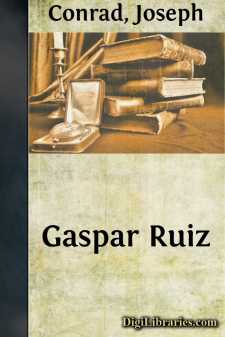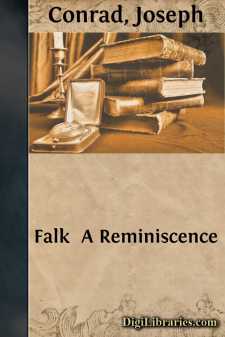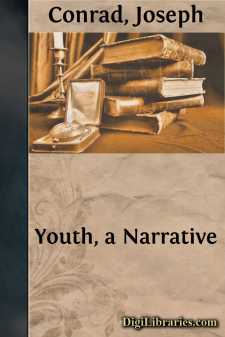Categories
- Antiques & Collectibles 13
- Architecture 36
- Art 48
- Bibles 22
- Biography & Autobiography 813
- Body, Mind & Spirit 142
- Business & Economics 28
- Children's Books 14
- Children's Fiction 11
- Computers 4
- Cooking 94
- Crafts & Hobbies 4
- Drama 346
- Education 46
- Family & Relationships 57
- Fiction 11829
- Games 19
- Gardening 17
- Health & Fitness 34
- History 1377
- House & Home 1
- Humor 147
- Juvenile Fiction 1873
- Juvenile Nonfiction 202
- Language Arts & Disciplines 88
- Law 16
- Literary Collections 686
- Literary Criticism 179
- Mathematics 13
- Medical 41
- Music 40
- Nature 179
- Non-Classifiable 1768
- Performing Arts 7
- Periodicals 1453
- Philosophy 64
- Photography 2
- Poetry 896
- Political Science 203
- Psychology 42
- Reference 154
- Religion 513
- Science 126
- Self-Help 84
- Social Science 81
- Sports & Recreation 34
- Study Aids 3
- Technology & Engineering 59
- Transportation 23
- Travel 463
- True Crime 29
Gaspar Ruiz
by: Joseph Conrad
Description:
Excerpt
I
A Revolutionary war raises many strange characters out of the obscurity which is the common lot of humble lives in an undisturbed state of society.
Certain individualities grow into fame through their vices and their virtues, or simply by their actions, which may have a temporary importance; and then they become forgotten. The names of a few leaders alone survive the end of armed strife and are further preserved in history; so that, vanishing from men's active memories, they still exist in books.
The name of General Santierra attained that cold, paper-and-ink immortality. He was a South American of good family, and the books published in his lifetime numbered him amongst the liberators of that continent from the oppressive rule of Spain.
That long contest, waged for independence on one side and for dominion on the other, developed, in the course of years and the vicissitudes of changing fortune, the fierceness and inhumanity of a struggle for life. All feelings of pity and compassion disappeared in the growth of political hatred. And, as is usual in war, the mass of the people, who had the least to gain by the issue, suffered most in their obscure persons and their humble fortunes.
General Santierra began his service as lieutenant in the patriot army raised and commanded by the famous San Martin, afterwards conqueror of Lima and liberator of Peru. A great battle had just been fought on the banks of the river Bio-Bio. Amongst the prisoners made upon the routed Royalist troops there was a soldier called Gaspar Ruiz. His powerful build and his big head rendered him remarkable amongst his fellow-captives. The personality of the man was unmistakable. Some months before, he had been missed from the ranks of Republican troops after one of the many skirmishes which preceded the great battle. And now, having been captured arms in hand amongst Royalists, he could expect no other fate but to be shot as a deserter.
Gaspar Ruiz, however, was not a deserter; his mind was hardly active enough to take a discriminating view of the advantages or perils of treachery. Why should he change sides? He had really been made a prisoner, had suffered ill-usage and many privations. Neither side showed tenderness to its adversaries. There came a day when he was ordered, together with some other captured rebels, to march in the front rank of the Royal troops. A musket, had been thrust into his hands. He had taken it. He had marched. He did not want to be killed with circumstances of peculiar atrocity for refusing to march. He did not understand heroism, but it was his intention to throw his musket away at the first opportunity. Meantime he had gone on loading and firing, from fear of having his brains blown out, at the first sign of unwillingness, by some non-commissioned officer of the King of Spain. He tried to set forth these elementary considerations before the sergeant of the guard set over him and some twenty other such deserters, who had been condemned summarily to be shot....












